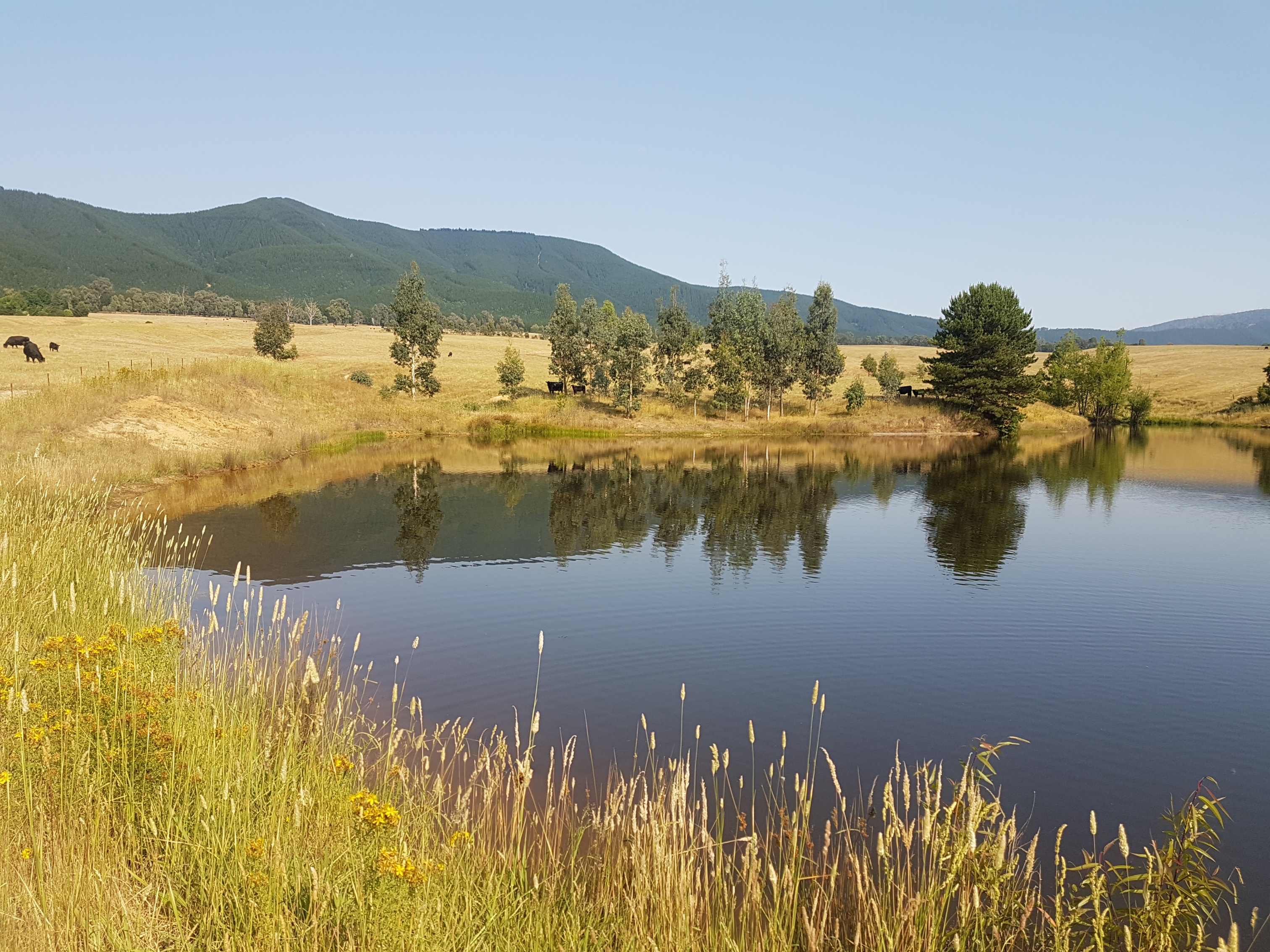
Enhance farm dams
Dams are essential for many farming operations, including for livestock and irrigation. Enhancing a farm dam can lead to improvements in water quality and provide habitat for a wide variety of native wildlife.
Read moreSupport biodiversity, improve farm productivity and connect with community. Join us to explore the potential of on-ground action to improve natural assets on farms.
Find out moreOn the Farm:
Healthy natural assets underpin farm productivity and landscape resilience. Our research, undertaken in partnership with farmers, Landcarers and NRM agencies, explores the benefits of looking after natural assets.

Dams are essential for many farming operations, including for livestock and irrigation. Enhancing a farm dam can lead to improvements in water quality and provide habitat for a wide variety of native wildlife.
Read more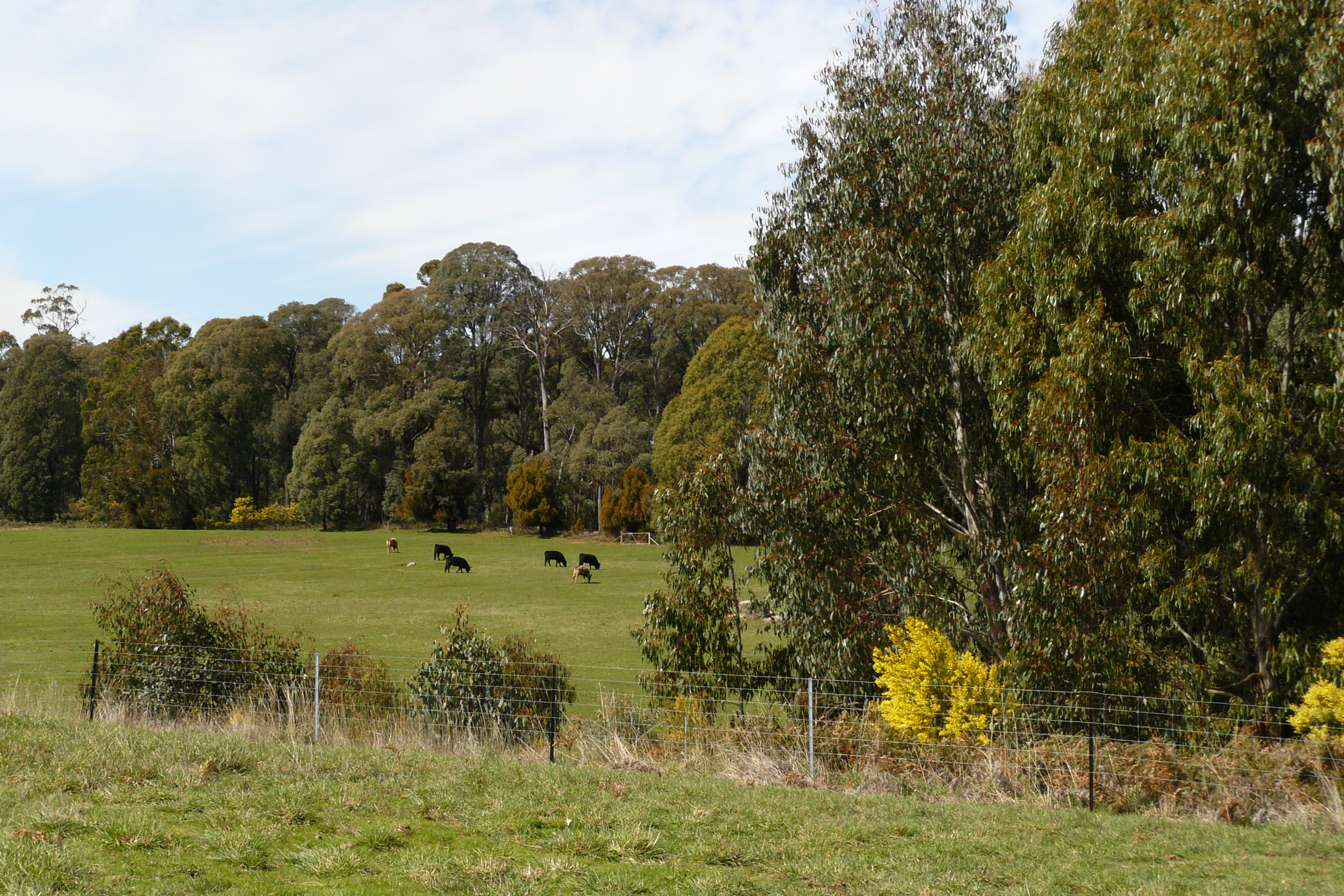
Shelterbelts provide shade and wind protection for livestock, mitigate erosion and slow wind speeds. They also support many species of animals, helping conserve wildlife and contributing to natural pest control on a farm.
Read more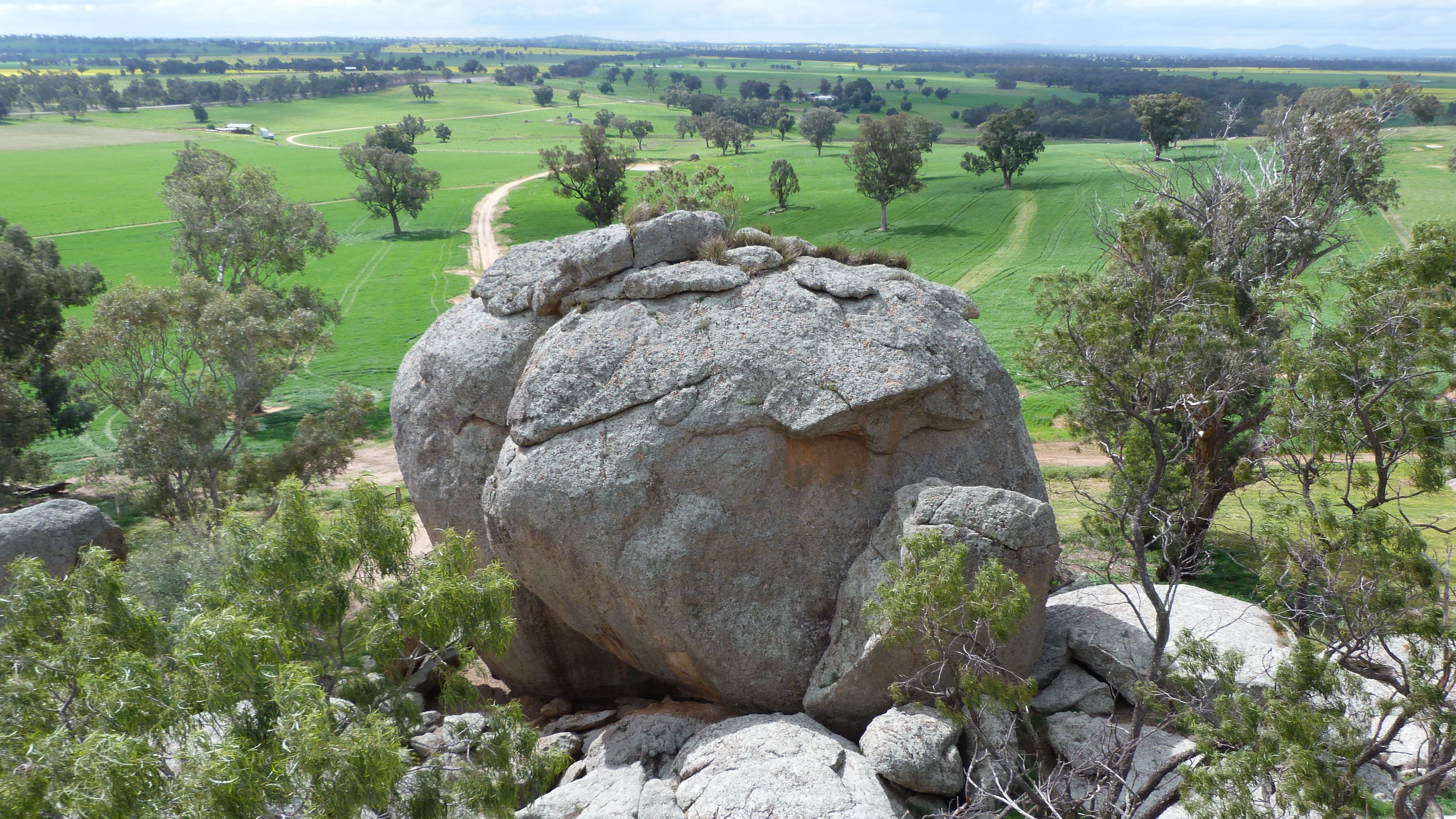
Healthy rocky outcrops can boost farm biodiversity, productivity and soil health. Managing rocky outcrops generally requires little ongoing effort or cost.
Read more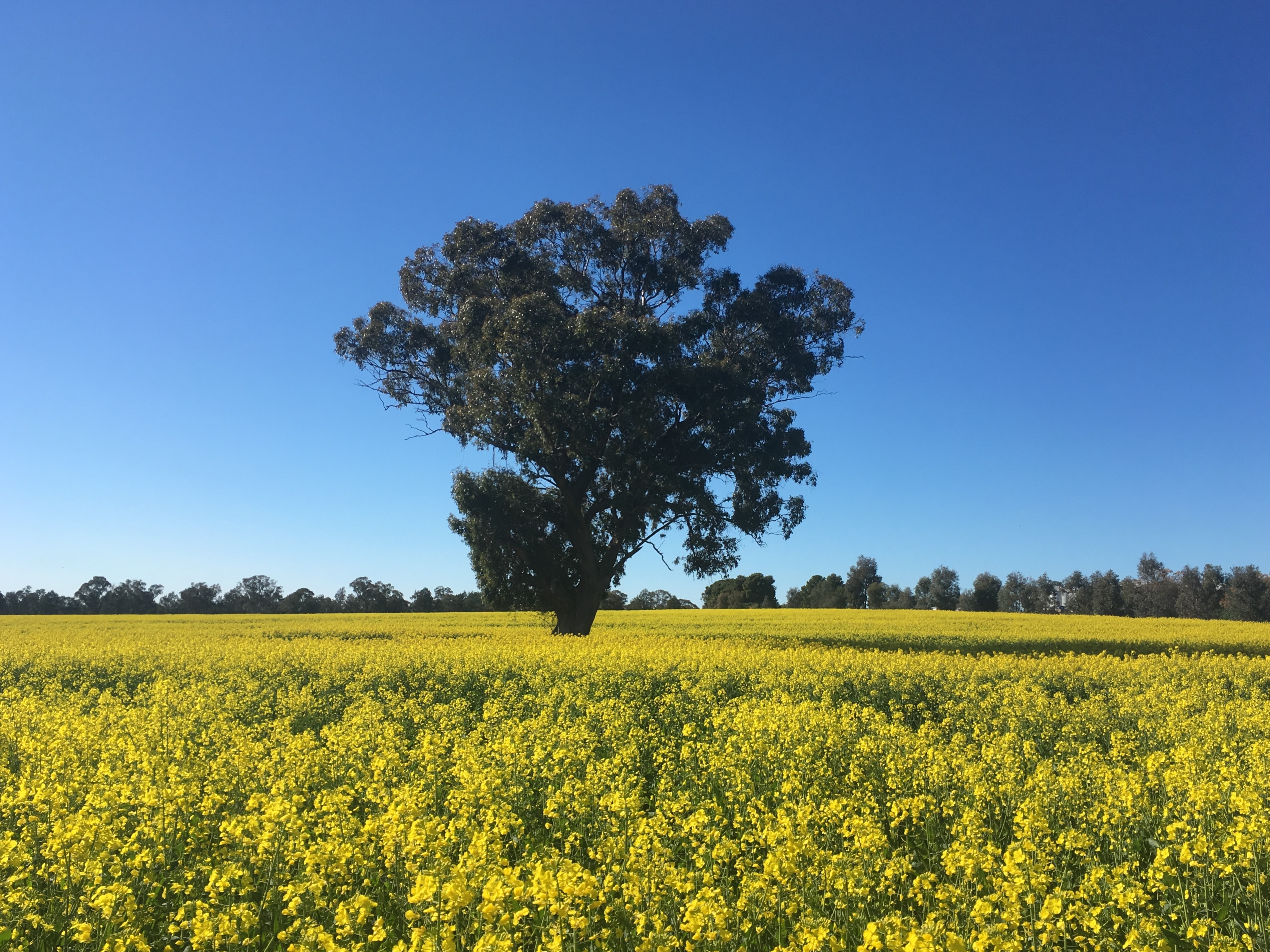
Scattered paddock trees are vital for agricultural productivity and for the conservation of wildlife. Many of these trees are being lost due to old age, stress and fire, but there are ways to protect and restore paddock trees.
Read moreAbout us
Sustainable Farms brings science to the paddock, working closely with Landcare and with farmers to understand how improving natural assets on farms can support biodiversity and sustainable agriculture.
Farmer Stories:
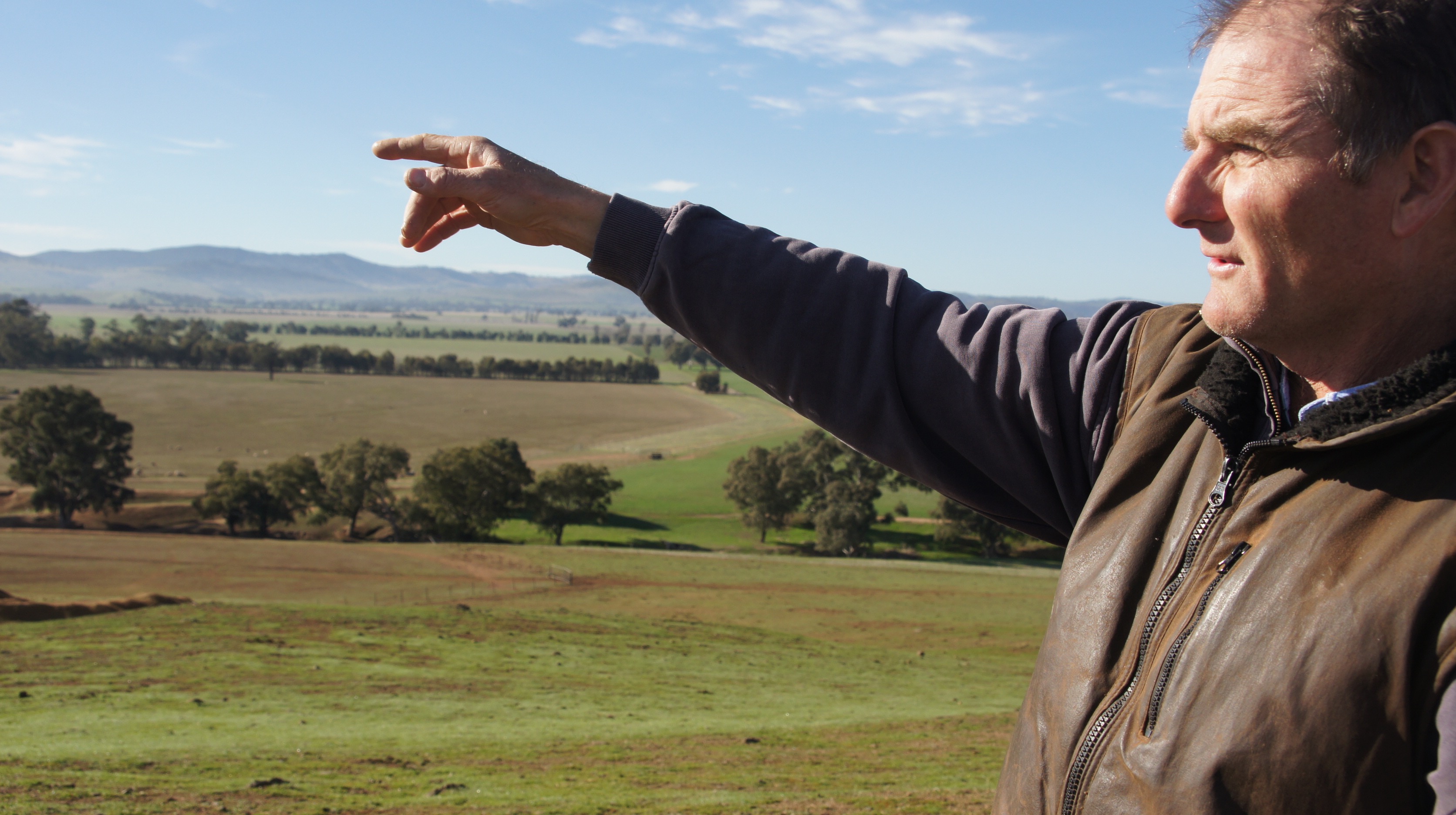
John and Nicole Hopkins run a Simmental Stud on ‘Allawah’, a 1,040 ha grazing and dryland cropping property near Illabo, east of Junee, which also produces lambs, wool and dryland cereal and oilseed crops. John and Nicole Hopkins are a typical farming family of the region. They both work full time on the farm and employ casual staff.
John is on the State and National Council for the Simmental breed. He champions the concepts implemented on Allawah through these forums, and particularly when people come to see their livestock, as well as through their involvement with Landcare and their connections to neighbouring farms.
The Hopkins have battled devastating fires on two separate occasions. After the second fire, instead of re-fencing in the same places as his father had done, they changed where the fences were located. They have since planted extensive areas of native trees and shrubs on Allawah, fencing off corridors and allowing waterways to regenerate John and Nicole are active Landcare members and have hosted a number of field days with Landcare in the past, including workshops for training LLS staff, and trialling rabbit control methods. John also has participated in some short film clips on sustainability with the ANU and Landcare, and is actively involved in supporting policy proposals developed through Sustainable Farms.
Read more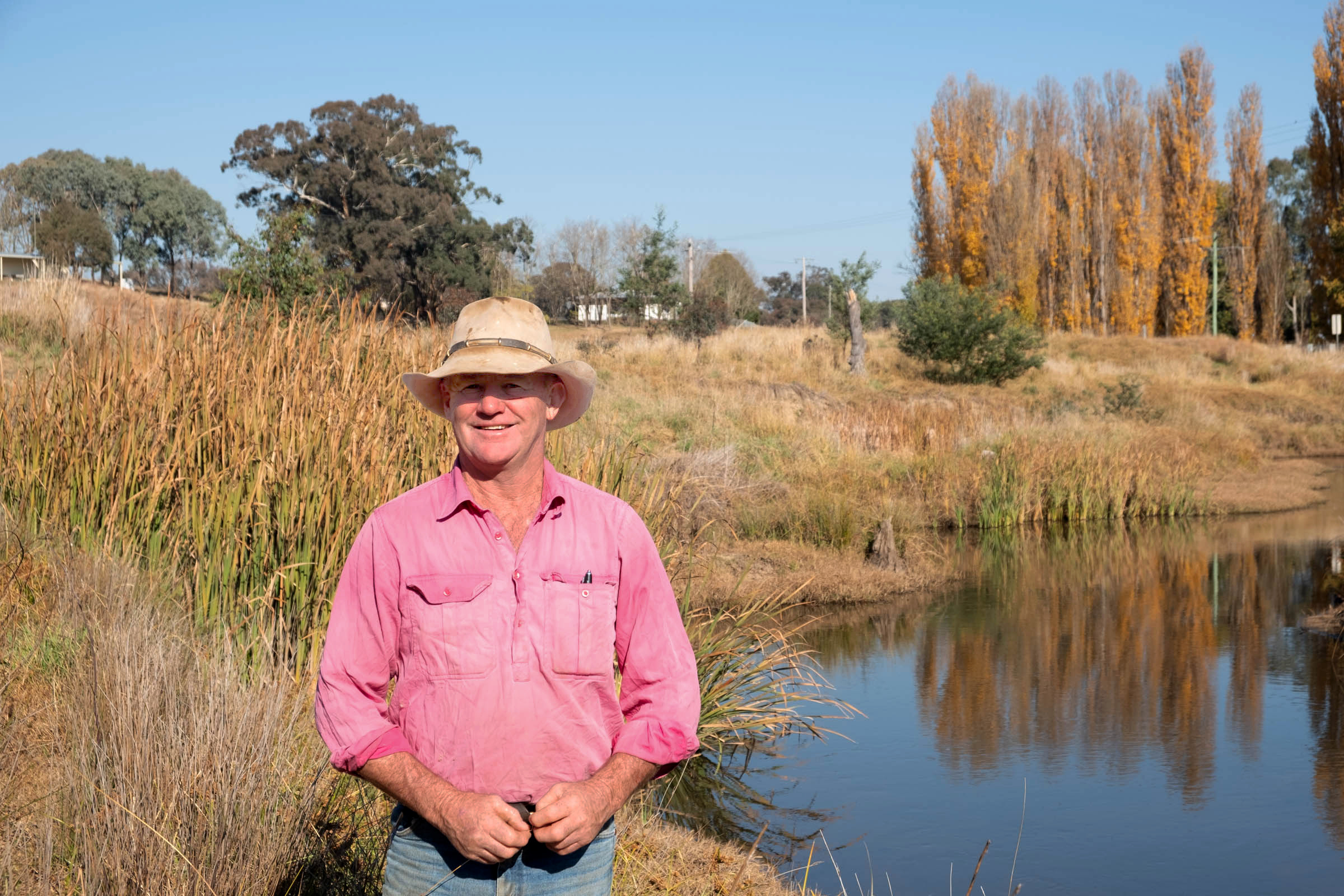
Bongongo provides excellent example of riparian and wetland area restoration for species specific management (Booroolong Frog and Macquarie Perch).
Read more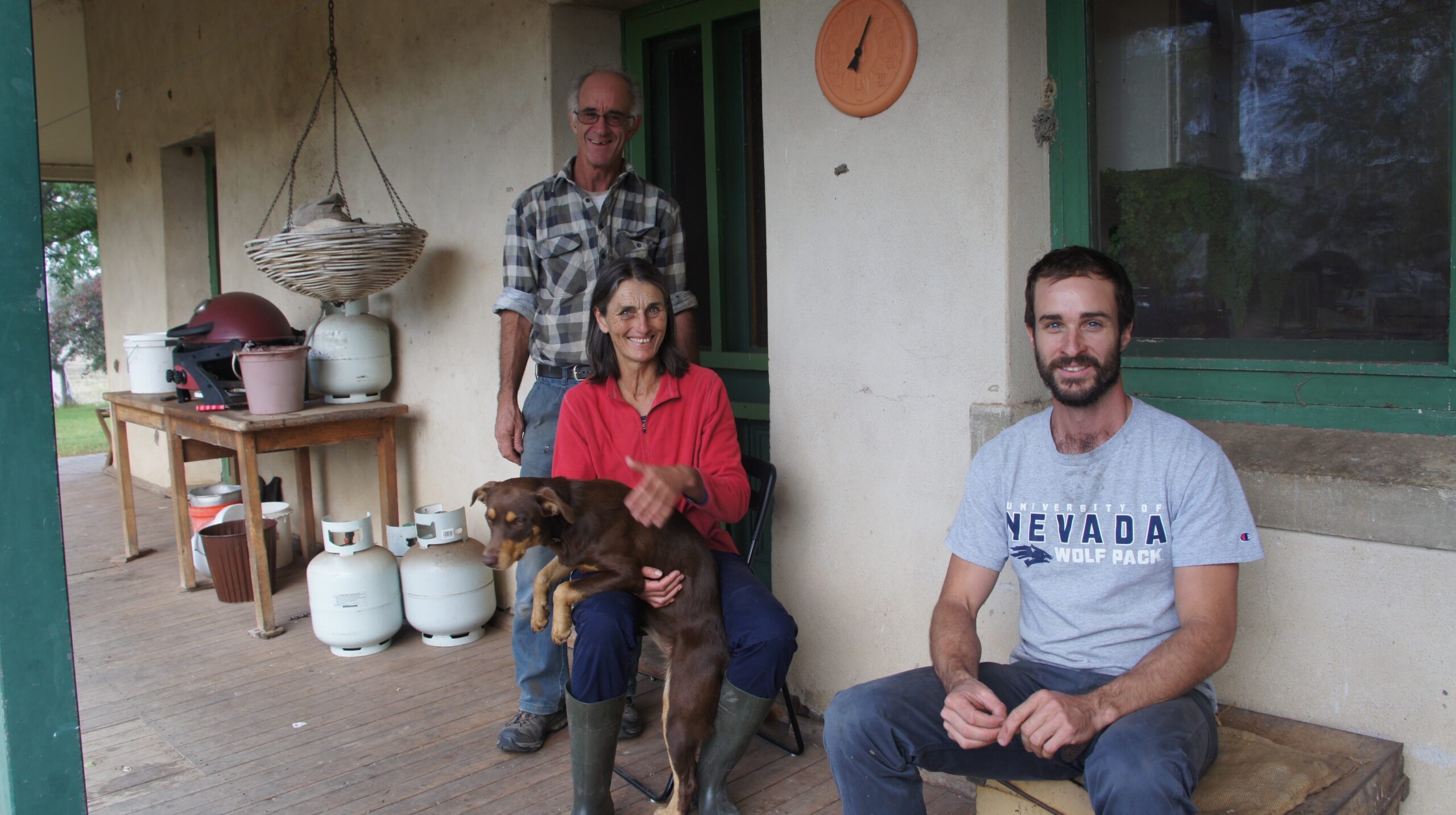
The Johnsons have implemented shelterbelts, riparian restoration, management and enhancement of native and mixed native pastures, and management of wooded pastures.
Read more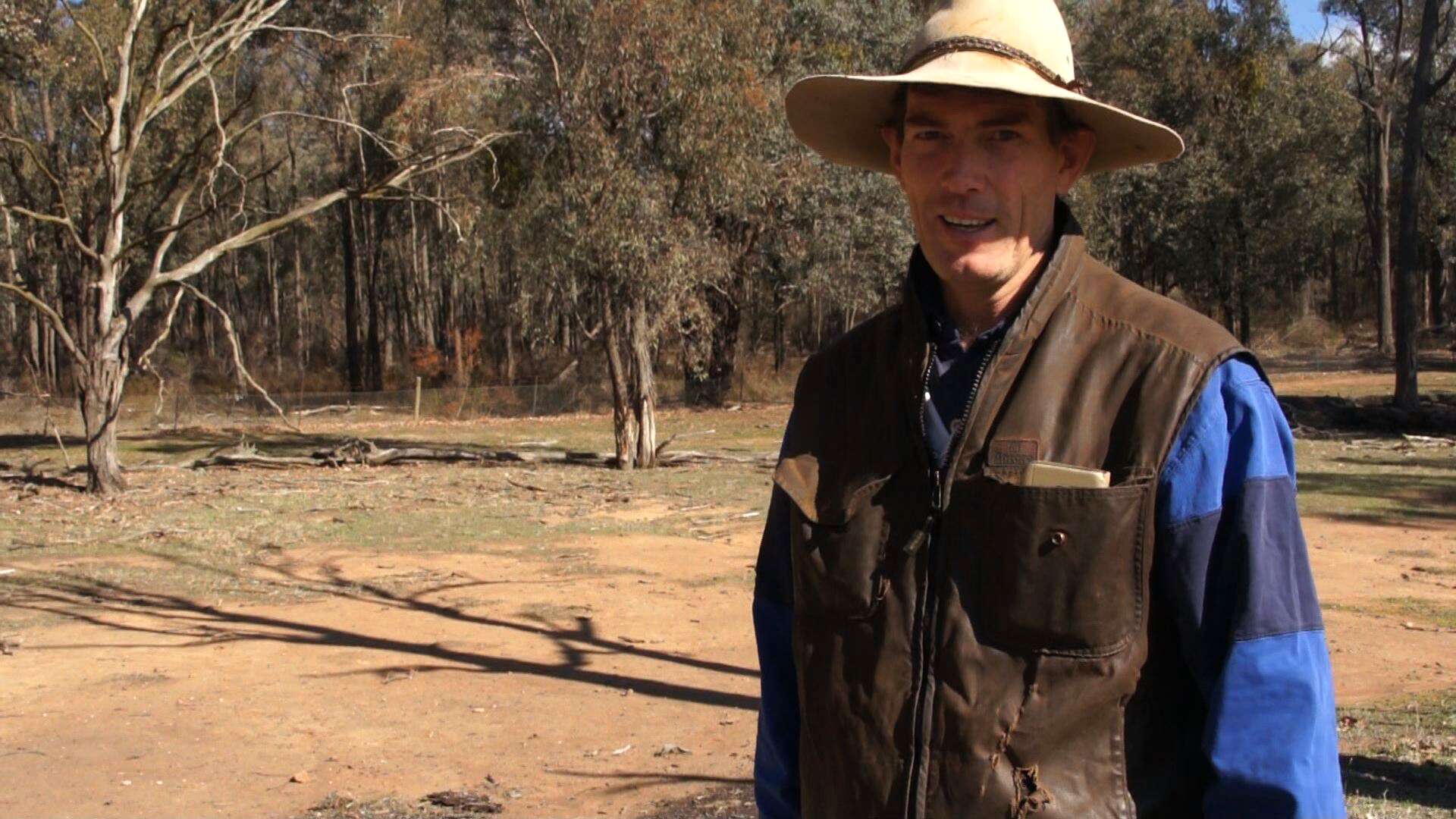
Yallock provides examples of restoring and managing existing woodlands, farm dam enhancement and shelterbelts and presents a good example of woodland management conservation in an agricultural landscape.
Read moreHave you managed natural assets on your farm and seen results? Perhaps you’ve planted trees or fenced a creekline. What did you notice?
Share your storySustainable Farms works in the NSW South West Slopes, Central West, Murray-Riverina and north east Victoria. Our project area overlaps extensively with the Murray, Riverina, Central Tablelands, Central West and South East Local Land Services in NSW, and with Goulburn Broken and North East Catchment Management Authorities in Victoria.
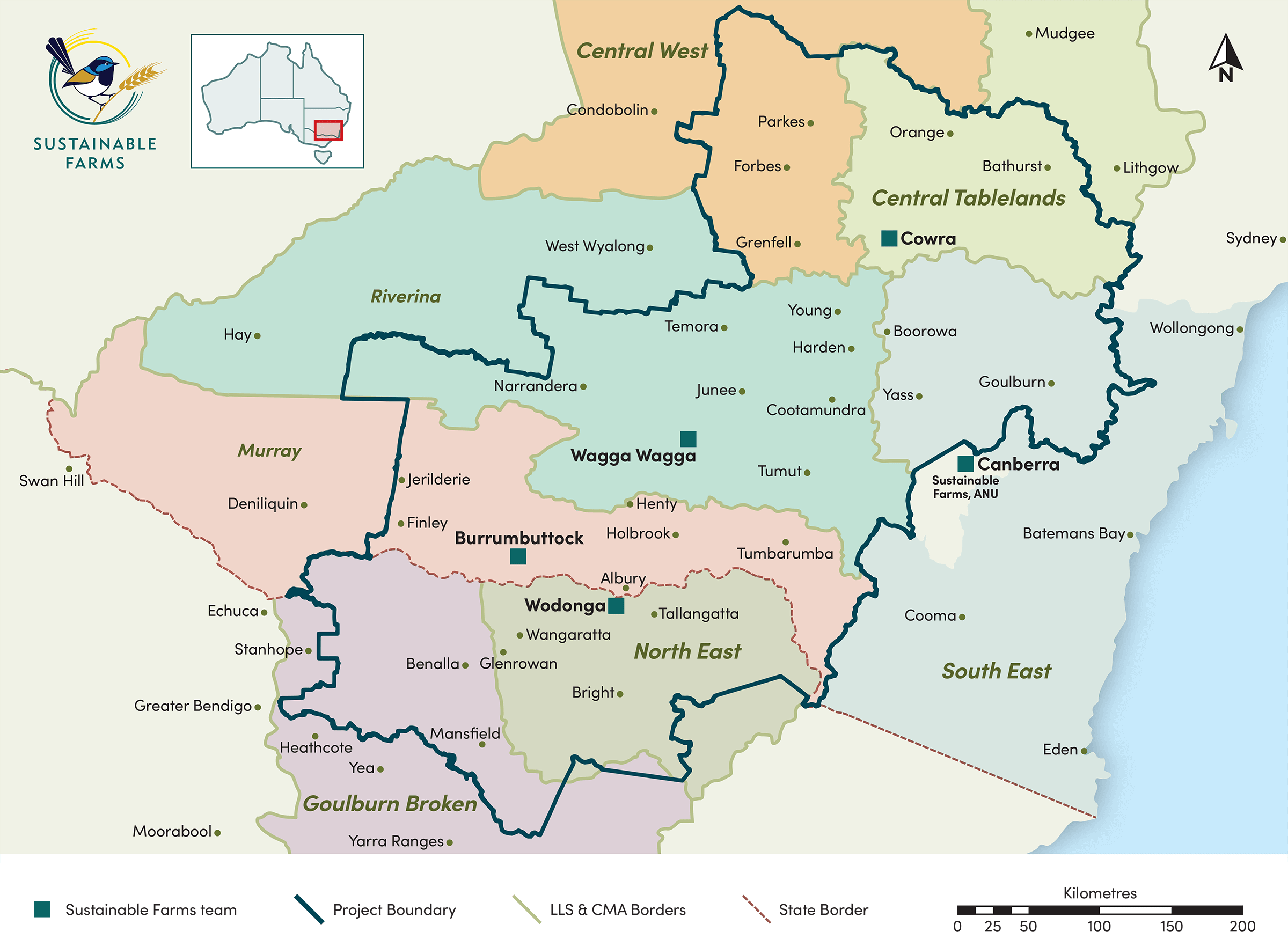
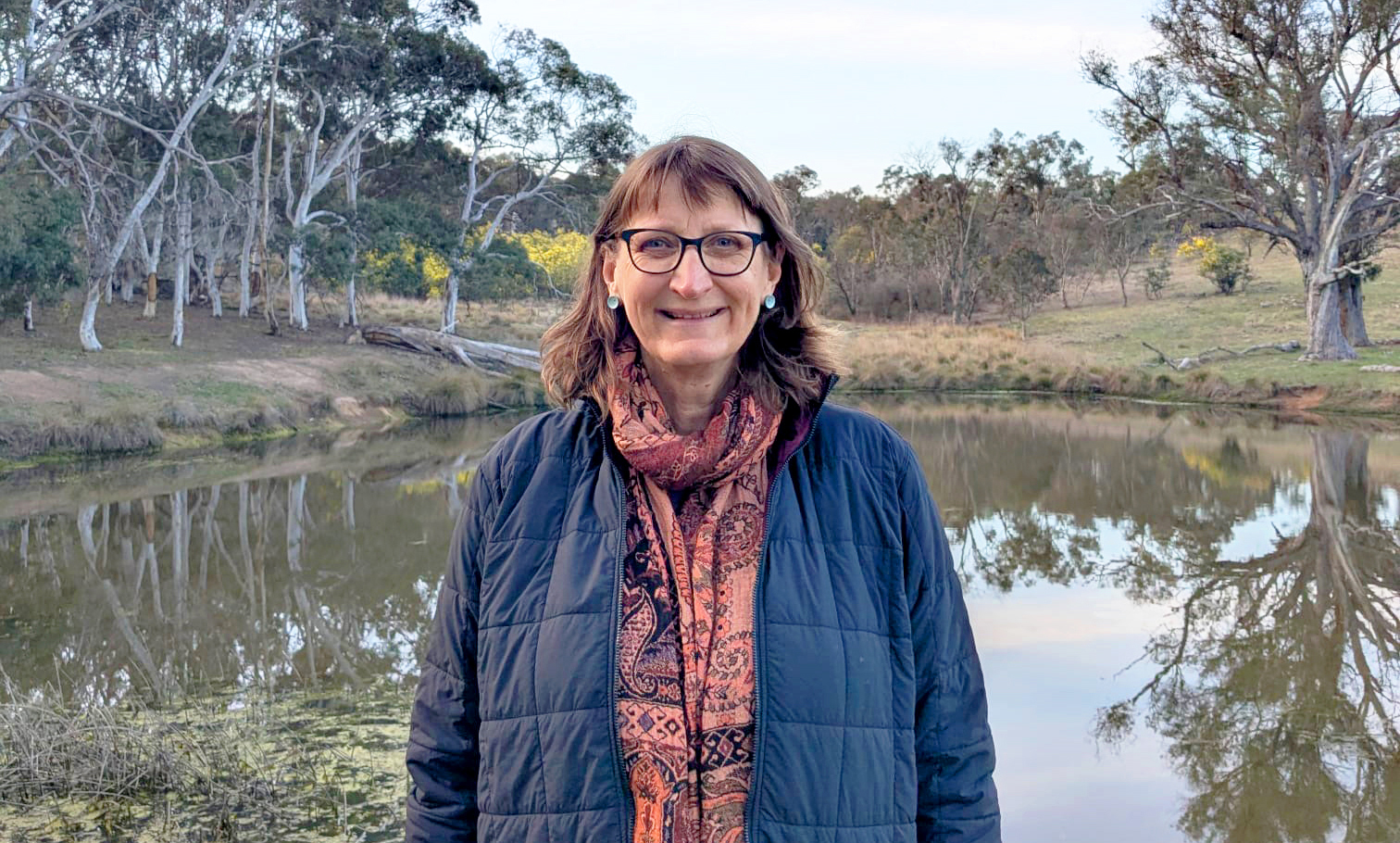
After nearly eight years as Project Director for Sustainable Farms, we bid farewell to Michelle Young whose vision and leadership have guided the project to become a leading force in conservation on farms.
Read more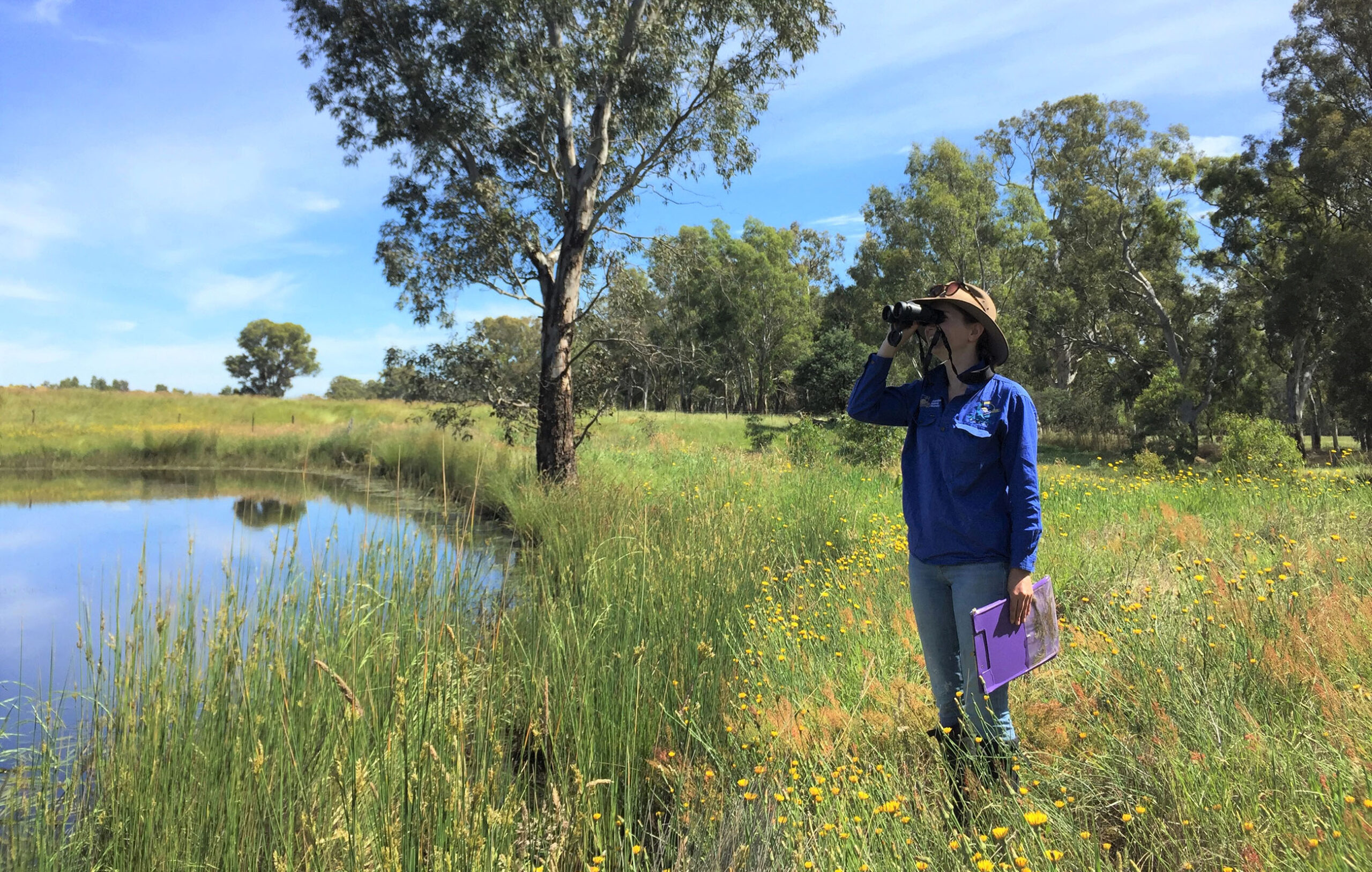
Research by Sustainable Farms demonstrates how managing farm dams through grazing control and revegetation significantly boosts bird biodiversity.
Read more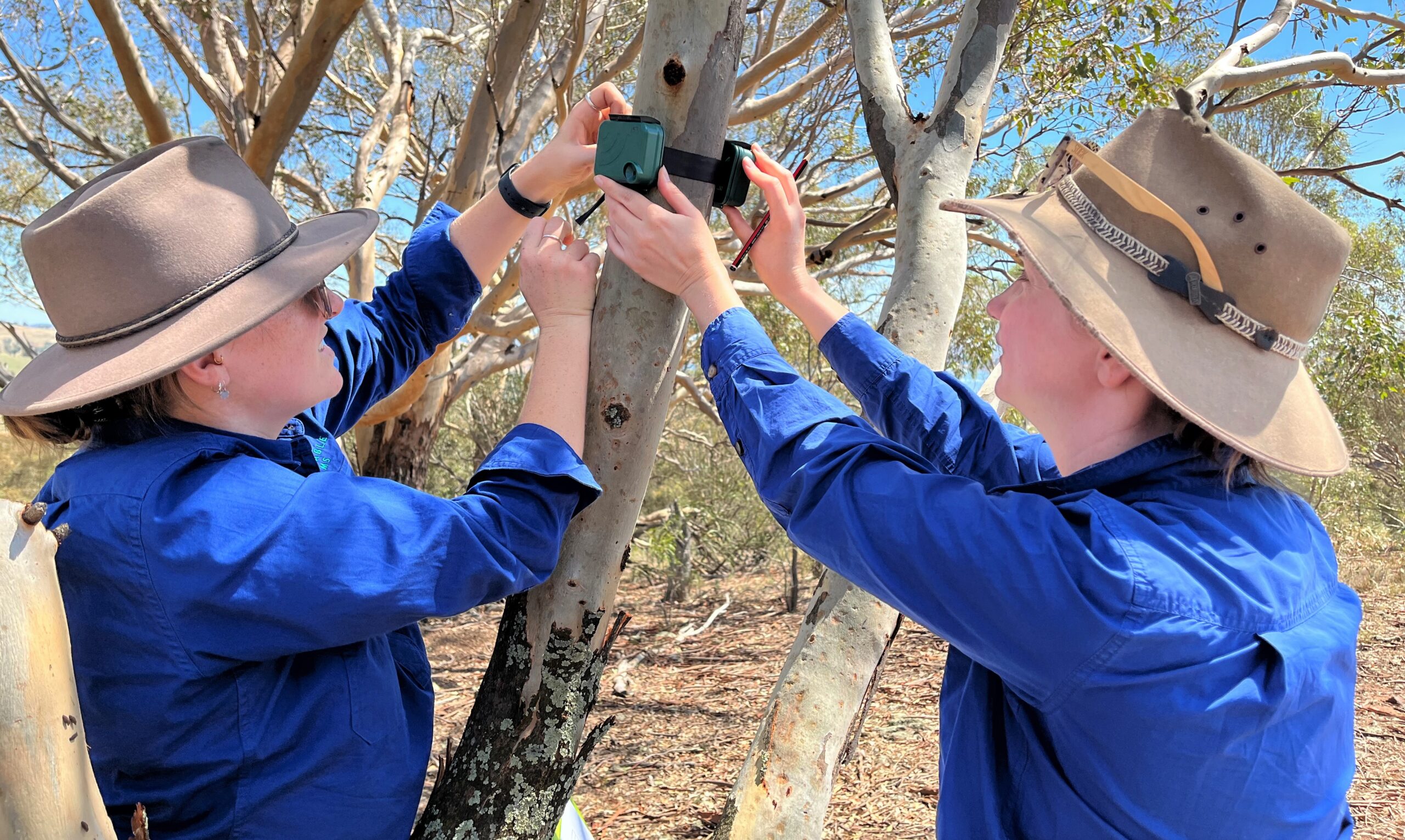
New research on technological advancements in ecological monitoring, led by Dr Jessie Buettel at the Australian National University.
Read more